Star Trek, Star Trek Beyond, Star Trek Into Darkness
These reviews will contain spoilers.
David’s Log, stardate 14 March, 2019. After 13 assignments with The Enterprise crew, I have successfully completed my mission and bid them farewell. At times it’s been a bumpy ride, particularly at the very start, but I leave them with a heavy heart, I doubt it will be long before we make contact again though – be it with another movie or one of the numerous shows. But for now, here’s where it ends: with the so-called Kelvin timeline (named after George Kirk’s ship). It’s a comeback clearly envisioned as a starting point for the next generation of Trekkies. I fondly remember seeing the first Abrams flick at the cinema, going in a franchise virgin, and loving it. The characters were immediately interesting, the tool to accommodate earlier fans was expertly judged and the planet-hopping/ space adventure was exciting from the start. That being written, ten years on I could barely remember any of it. As such I was keen to go back, equipped with a knowledge of 10 other movies and an appreciation of what mid-life crises this handsome young crew’s formative experiences would soon birth. So it was with the usual drink in hand I went to see the guys for this last voyage.
From the grand opening moments, through to the powerful last frames of Beyond, it’s clear this not the Star Trek your geeky uncle was obsessed with. It’s all the better for it too, given how stale Insurrection and Nemesis had become compared to the glorious celestial pleasures of the series best entries. There’s extravagant effects, generous amounts of action, uncharacteristically well-choreographed hand combat and more lens flare than you can aim a phaser at. There’s also greater cinematic spectacle than even the most attractive next gen films gave, with new technology enabling the team to create strange new worlds the likes of Gene Roddenberry could only dream of. And best of all, not a single reference to the plot tumour Data had eventually become. Hence if I were a broadsheet critic I’d suggest the Kelvin trilogy are science fantasy, more akin to adventures in a galaxy far far away than the science fiction of parts 1-10. The change in tone isn’t merely cosmetic– their scripts have a looser feel, with most of the running times dedicated to the team lurching between explosions and other life-threatening events. Thus decisions are made on the move, not the bridge, giving an urgency in place of the earlier films’ more thoughtful approach. The middle-aged crew members in their autumn years are also replaced by younger, spring versions of themselves – more agile and badass than ever before. Particularly Spock. With this in mind, though I’ve routinely argued there’s no such thing as a standard Star Trek blueprint, I think this three veer far from the rest of the franchise. As such, comparisons aren’t necessarily like for like. At their best they’re loving homages that remind me of why I love cinema, and at worst bloated effects extravaganzas that remind me why I rarely go now. Still, we start very well…
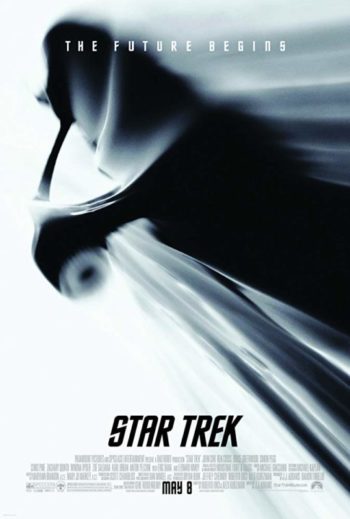
Star Trek (2009)
A new beginning. JJ Abram’s vision of the life and times of James T. Kirk, plus his crew, embodies the original swashbuckling energy that the Next Gen team never quite had, and then some. This is an origin story, charting him from a young Beastie-Boys loving tearaway – who gets in bar-fights – to his time in captain’s seat for the five-year mission. Among other milestones, we see the first stages in the friendships that will go on to define him, and the mythical time he beat the Kobayashi Maru’s no-win scenario (referenced way back in Wrath of Khan). Like the first incarnation, the key relationship is the odd-couple one between Kirk and Spock. The former is a hothead with daddy issues (his dad’s death is changed in a stunning opener), whilst the latter has a stick up his arse and mummy issues. It’s the classic buddy structure as they go from enemies to begrudging acquaintances in their fight against Nero: a Romulan native who accidentally skips from the original universe to this side-canon in pursuit of the original universe’s Spock. Thankfully it’s not as awkward as it sounds. Rather it’s an ingenious way of both celebrating the old timeline and legitimising the new one, that allows for what’s essentially a prequel to carry dramatic weight. Crucially, the twist also means anything can happen this time around: all bets are off. Thus the stage is set for a fast-paced plot that has the fresh-faced crew engage in what are by far the most spectacular action sequences to date. The epic scope is made even better with the still new crew being slap-dash risk takers, giving a scrappy improvised feel that constantly cuts them down where they would normally be supermen. In contrast to three of the last four films, it’s thrill a minute stuff. This contagious, seat of the velour excitement makes up for a lot of sloppiness in the plotting. The key beats for a good debut are all there, with the hero’s journey being compellingly told.
Reflecting on it a few days later though, and it’s strange the film works so well given there are black holes in the plot. Ignoring some of JJ Abram’s odd ideas about how space works, such as Spock watching Vulcan implode from a world that’s light-years away, the story is reliant on ludicrous coincidences to work. For instance, Kirk’s attempted mutiny sees him sent to a remote planet where he meets the original Spock, busy doing his best Obiwan impression in a cave. As well as a disgraced Scotty, who works in an isolated outpost as punishment for inventing the very tech needed to get them back onboard the ship. Such problems are exacerbated by the wildly implausible career trajectory Kirk goes on, advancing from stowaway to captain within the space of a single flight. I’d like to think it’s this universe trying to correct itself after ripples from the main one, though this isn’t elaborated on. Against this backdrop the Kirk and Spock friendship blossoms, though this is similarly badly handled with them still violently at odds well into the third act. It’s annoying because both of them have arcs that are individually well constructed, but that’s despite their shared scenes being too hostile. Gone are the days of disagreements based on mutual respect. Luckily the original Spock swoops in to encourage his Kelvin counterpart to accept his captain’s companionship despite their differences – like a wearisome father telling his sons to play nicely. Don’t get me wrong, it’s fun to see them at a more tempestuous point in their bromance, but it’s emotionally unsatisfying to see them become chums within a few generic lines of dialogue. Then there’s Nero – a flimsy villain made less interesting when his motivation for blowing up Vulcan is reduced from avenging the deaths of all his people to doing it for a woman i.e. Bane syndrome.
Nonetheless, I’d still call a four-star film. Because as important as these things would usually be, I’d be lying if I said they stopped me from enjoying it. In part, this is because the acting is spot on. Chris Pine and Zachary Quinto give their all in honouring the old performances, all the time making the mythical younger versions of these characters their own. Still, it’s Karl Urban who steals the show though, with a spot-on version of Bones, treating every last moment for the inconvenience it is. The script they read from may be lacking. But as an adventure driven space opera, they make it outstanding, taking the Star Trek name from doldrums to a rich new galaxy. A brilliant return to form and the reboot fans new and old alike needed.
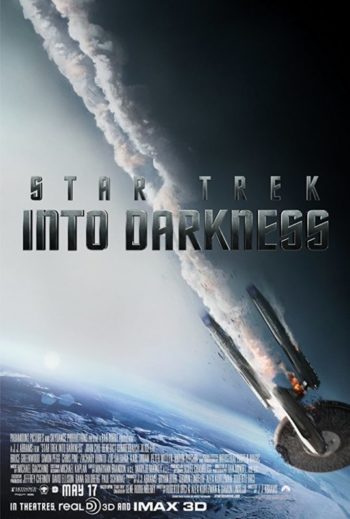
Star Trek Into Darkness (2013)
If the jump between the first and second films in the original movies marked the franchise’s greatest increase in quality between entries, this new first to second is its biggest drop. To be fair, the sequel does try right some wrongs, like addressing the farcical nature of Kirk’s promotions last time around. It does this demoting him in the first ten minutes – for violating the prime directive – only to promote him again within the same act. Needless to say, this feels pretty darn cheap. Not that this is the worst example of Into Darkness creating a big plot point it almost immediately goes back on (more on that later). The rest of the film’s first hour stretches about 15 minutes of story via a series of swollen set-pieces, before finally unveiling its underwhelming villain. And that’s when the real problems begin. A butterfly flaps its wings in one universe, and Khan changes race in the alternative one: going from a Northern Indian Sikh (played by the Mexican born Ricardo Montalbán) to a Caucasian. As HorrorCultFilms’ resident liberal snowflake I think it’s hard not to find the quintessential posh, white guy playing the part problematic. Nevertheless, Benedict Cumberbatch rises to the occasion, making for a menacing presence for the fractional share of the running time where he’s both onscreen and not locked up. But his personal connection to the core crew is completely cut, given the history that his first Wrath drew upon no longer exists. Furthermore, he’s relegated to a henchman for the most part, making it a waste of Cumberbatch’s talent and, more importantly, an iconic role. Seriously, bad form from the writing team for that.
And for so much more. As a critic, I have to separate the artists from the art. But given the cast and crew repeatedly denied Cumberbatch was playing Khan, and by extension the film was a remake, I find their behaviour deeply cynical. Had it been promoted as Wrath of Khan version 2.0 there’d have no doubt have been some disappointment. But I reckon it’d be nothing compared to that of fans parting with hard-earned cash to watch a derivative film they were tricked into thinking was a fresh concept. Not least because they’d only had one outing, an origin story, since the last time they saw it get cloned. As we reached the twist of having Spock yell Khan’s name, following the oddly unmoving death of Kirk, I felt genuine rage. And this is coming from a guy who saw Wrath of Khan about 2 months ago – I expect some cinema screens won’t have made the performance intact if there were hard-core Trekkies in attendance. Fine, there’s some cleverness to the reversal that takes place, yet the essential relationships aren’t there and cheaply evoking a much better film underlines this.
Because of the writers’ compulsion for heightened conflict throughout, ‘lest the audience gets bored by talking where shouting would do, the duo’s shallow rapport has the same antagonism and smattering of convenient epiphanies as last time. Accordingly, the emotional impact is that of finding out on Facebook that someone you barely knew at school scraped their knee. Luckily there’s a convenient plot device available, as Khan’s cells resuscitating a dead hedgehog – after Bones seemingly injects it with his blood for the sheer hell of it: a solution so forced it had one of my friends hurl a somewhat appropriate shoehorn at the screen. Cue a farfetched mid-air fight scene to retrieve more, that’s almost uniquely generic, before Kirk has risen again – in doing so, seemingly remembering his own birth! Thus we have the redundant plot device of a central character being killed, followed by minimal grieving or drama, only for them to come back within the same twenty minutes. It’s the illusion of being bold. A bit like the last time the makers ripped off their best work. Despite the source material’s creed is to explore new worlds, this movie is more concerned with attempting to mimic past successes than going boldly where no entry has gone before. It also has a completely shit name.
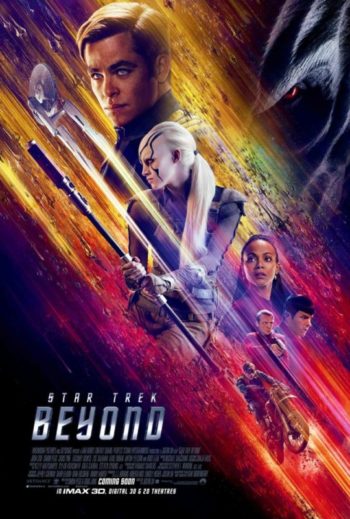
Star Trek Beyond (2016)
Once more unto the breach! To cement the rule of the odd Kelvin numbers being good is Star Trek Beyond. The Simon Pegg and Doug Jung penned sequel is the most definitively Star Trek of the new outings, capturing the essence of the series better than either predecessor. As per the classic structure, the crew of the USS Enterprise explores the reaches of uncharted space where they encounter a ruthless enemy who threatens them both and The Federation. By the end of act one the once again iconic Enterprise is sent hurtling down in spectacular fashion. Crash-landing conveniently close to each other, the team need to reassemble and find a way off the rock via some of the most elaborate action scenes of the series. I’d even say Justin Lin’s direction pips Abrams’ in this department. What’s even better is, with a big exception I’ll come to in a moment, the script’s also stronger than either of his outings. It’s tighter than the 2009 reboot, with nothing like the same knack for contrivances. In addition, the majority of the character work is exemplary. The first act’s exploration of inner space and the banality of life in the stars lives up to the sombre dramas of the classic crew, whilst being economical with time. With the exceptions of Sulu and Uhura, who go sadly underused given their prominence in the other entries, everyone gets their time to shine too. This is partly because the writers also ensure characters share the screen with people they’re not usually with, which is rewarding. In particular, two-way scenes between Bones and Spock – without the counterbalance of Kirk – are a triumph with script and actors finally feeling like their old selves. In this sense, Beyond shows the weaknesses of the other sequels more lifeless approach to characterisation. And it has that epic Beastie Boys scene!
Still, despite plus points aplenty it doesn’t quite land. The most pressing problem is a vacuum where there should be a villain. Idris Elba is as reliable as ever as Krall. But with his motivation being kept under wraps for much of it his limited screen time – in service of an admittedly effective reveal – he fails to register as an especially interesting threat. By the end, there’s the potential for a thought-provoking take on the ideological battle between individualism vs collectivism. Though with the crew’s survival narrative taking up most of the second act it feels more like a minor detail than an essential part of proceedings. It’s frustrating, because in the reboot Abrams and co’s characters were less strong, yet they were far better able to develop them on the move. There’s also the question of how Federation technology has gotten worse: despite being marooned on a deserted planet for a century, Krall takes down a Constitution Class Starship and amasses a team of millions. Speaking of teams, another irritating aspect of Beyond was how it disingenuously flirts with the possibility Kirk, Spock or both may depart the team despite a part 4 then being approved. It’s a tried and tested plot beat, masquerading as a shortcut to a poignant finale, that had been overused when the future of the films was less certain. Ironically it looks like this may be the last tale for a while. So the closing seconds, where each of the crew gets their shot at the monologue, takes on a new pathos that would have been dampened if audiences makers got their way.
On that bittersweet note, it’s time to go. But as I suggested above, I’m certain we’ll be reunited before too long – in some form or another. In the meantime, I want to thank you for joining me on this voyage dear reader. Over these last couple of months, I’ve come to understand a pop-culture phenomenon I knew little about. I’m so pleased I have: Star Trek’s a great series that, at its best, has filled me with a wonder few films have as an adult. I’ve immensely enjoyed exploring space with the Enterprise crew and my own room of friends to boot. As I ponder if The Ballad of Floaty Jeff ends with him reaching a starship (see my last entry) , I shall leave you with wise words paraphrased from the galaxy’s second most impressive captain – one Jean-Luc Picard. Always make now the most precious time. For now, will never come again. And I’m glad to have spent some of my limited time on this mortal coil watching Star Trek. This is David signing off. Set course for the second star to the right and straight on till morning.
Other entries to this series can be found here, here, here and here.

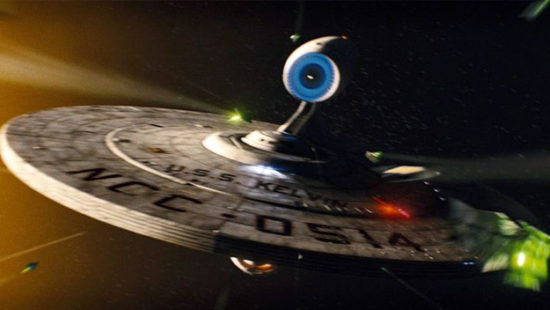




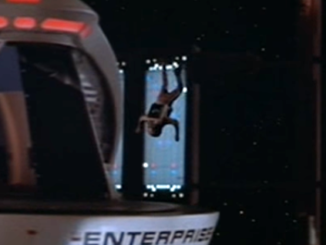
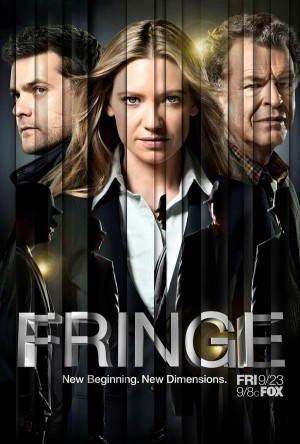

Be the first to comment